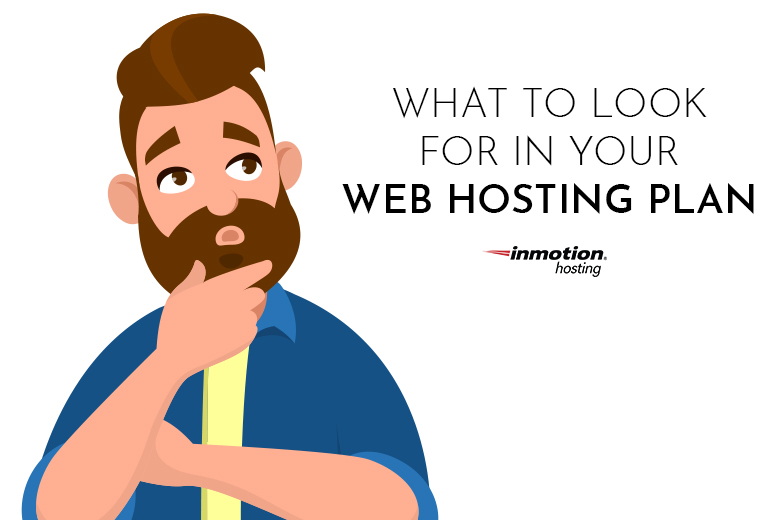
Whether you’re about to launch your first website or you’re an old pro with several under your belt, web hosting services can be confusing. There are countless different hosting providers out there. Most of them offer several different types of hosting options. And, frankly, they all sound pretty similar if you don’t speak “tech.”
Even if you don’t understand what web hosting is, you probably do understand what it does for you: it makes your website accessible via the Internet and keeps it up and running smoothly. At least, that’s what it’s supposed to do.
Unfortunately, many hosting plans don’t live up to the hype. And since the last thing you want is a website with constant performance issues or–even worse, constant downtime–it’s best to do a little research before choosing a plan.
Understanding Your Business
The first thing you should do? Get to know your own business. If you don’t understand your own needs first, you’ll never be able to choose the proper plan. Here’s what you need to ask:
- Do I need a large website? Are you planning on creating a simple one-pager? Or a large, multi-page website with lots of moving parts (images, videos, MP3s, and more)? In a nutshell, the larger and more complicated your site is, the more resources it requires.
- Will I be running an e-commerce store? Online stores require special functionality, so it’s important to verify that your hosting provider can support your particular needs.
- Do I require a high level of customization? As a general rule, the cheaper a hosting plan is, the less control you have over how it’s formatted. If you require specialized software, custom apps, or you want to use a particular OS, you may need a more comprehensive plan.
- Will I be collecting sensitive information? If you plan on collecting customer information, such as name, address, phone number, or credit card number, from clients, it’s essential to keep your site as secure as possible.
- Do I expect a lot of traffic? The more traffic your website receives, the more bandwidth it will require to keep it running smoothly.
- How fast do I need it to be? Typically, the faster your website loads, the better. In fact, web users today likely won’t even hang around if your site takes more than three seconds to load. That means that if you have a lot of traffic or tons of custom features which might slow your site down, it’s essential to make sure your hosting company can provide the resources you need to keep things moving quickly.
How to Choose a Hosting Provider
Once you understand your business website and its requirements, it’s much easier to choose a web hosting service that actually suits your needs.
What type of hosting do you need? There are four main options:
- Shared hosting: By far the most economical option, shared hosting houses several different websites on one physical server and resources are shared between them. This is a great option for someone with a fairly low-traffic or static website.
- VPS hosting: The next step up is VPS, which offers a guaranteed allotment of resources within a shared environment. It is still quite affordable and offers more customization options and greater stability.
- Dedicated server: An entire physical machine is dedicated exclusively to your business and its website (or websites). All of the resources are yours and no one else can use them. The server is highly customizable, very secure and performance is rarely an issue. This option is great for high-traffic websites or those that are constantly adding new content.
- Cloud hosting: Very similar to shared hosting, but with greater resources and more speed. Rather than sharing on a physical server, users share many different banks of servers located all around the world. This is a great option for those who want to stay within a budget but require more bandwidth.
Once you’ve determined the type of web hosting services you need, you can choose a provider. While shopping, look for these features:
- Uptime: Many hosting providers today guarantee 99.9% or even 100% uptime and anything less than 99.5% is considered unacceptable. Why? Because downtime means money lost. Make sure your hosting provider can guarantee an acceptable amount of time online. In addition, make sure the server has multiple backup locations – so if it does go down, at least your data is safe.
- Bandwidth: The more visitors you have coming to your website, the more data you will require. If you run a popular website, or you expect to have a large amount of traffic in the future, make sure your hosting provider can support a site like yours.
- Support: Does the hosting provider have 24/7 live customer support? Or will you need to wait a week for an email response when you have a problem or concern?
- Scalability: As your business grows, your website likely will as well. It’s important to know that as your needs change, your hosting service will be able to grow with you and expand as needed.
- Price: When it comes to business, one thing is true for everyone: it’s all about the bottom line. Don’t put yourself in the poor house to pay for a hosting service you can’t really afford.
Finding the Best Web Hosting Services
Did you know that InMotion started out as a small business? We understand where you’re coming from and how important your website is to your brand – and we want to help you succeed.
Our web hosting services are available at a variety of different price points, and each one is designed to help your website thrive and grow. Reach out today to learn more about how we can help you.